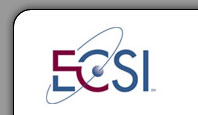|
B. LEGAL FRAMEWORK
Re-presented Check Entries (RCK entries) are subject to applicable NACHA
Operating Rules, the Uniform Commercial Code, and Federal Reserve Regulation
CC. These entries are not, however, subject to the Electronic Funds Transfer
Act or Regulation E. The legal framework for Re-presented Check Entries is
premised on the fact that the origin of each re-presented check entry is a
paper check that has been dishonored. Transfers of funds that were
originated by a check, draft, or similar paper instrument are specifically
excluded from coverage under the EFTA (15 U.S.C. 1693a(6)) and Regulation E
(12 C.F.R. 205.3(c)(1)). Accordingly, if a Re-presented Check Entry is
treated as a check transaction for purposes of the EFTA and Regulation E, it
follows that the UCC and Regulation CC should continue to be the bodies of
law that govern the rights and responsibilities of the parties involved with
that payment, even though it has been converted to electronic form.
2. NOTICE REQUIREMENT
An RCK entry is authorized by the consumer through the provision by the
Originator of a notice to the check writer and the subsequent receipt of the
consumer's check by the Originator. Originators of RCK entries must provide
notice to the check writer, prior to receiving the item to which the RCK
entry relates, informing the check writer that his returned check may be
collected electronically if the check is returned for insufficient or
uncollected funds. The manner in which the Originator provides notice to the
check writer is not prescribed by the NACHA Operating Rules. However, the
notice must clearly and conspicuously state the terms of the Re-presented
Check Entry policy. It is recommended that notice provided at the
point-of-sale be clearly displayed on a sign at the point-of-sale, and that
notice provided by a billing firm (i.e., utility company or credit card
company which issues a bill for payment) be clearly displayed on or with the
monthly billing statement.
Originators should be aware that, to protect both the check writer and the
RDFI, a check writer will be able to sign a written statement under penalty
of perjury and be recredited for the amount of the entry if the required
notification by the Originator is not provided. The RDFI, in turn, will be
able to return the RCK entry by transmitting the return entry to its ACH
Operator by its deposit deadline for the return entry to be made available
to the ODFI no later than the opening of business on the banking day
following the sixtieth calendar day following the settlement date of the RCK
entry.
|


![]()